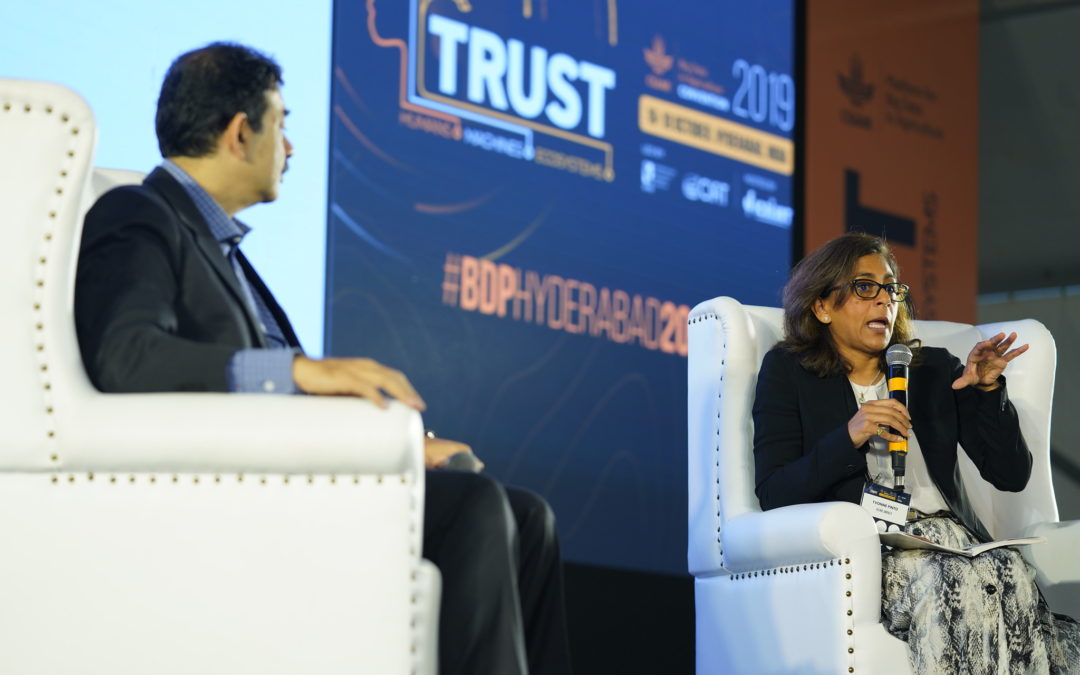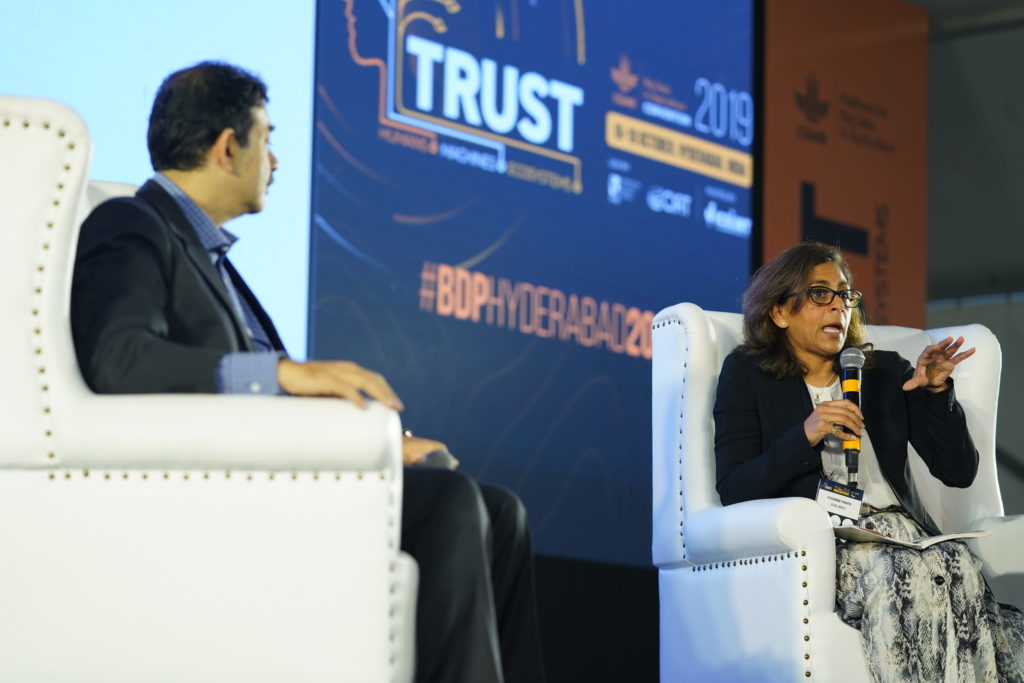Building trust is key for big data to deliver benefits to farmers
More than 650 policymakers, agriculture researchers, and data experts met to discuss how building trust is key to securing the benefits of big data for smallholder farmers and consumers, during the 2019 Annual Convention of CGIAR Platform for Big Data in Agriculture.
“We are familiar with the cliché that data is the new oil. It is believed that data will bring prosperity just as oil did,” said Mr Jayesh Ranjan, IT Secretary to the Government of Telangana, during his keynote address at the 2019 BIG DATA Convention.
“But we need to keep in mind that the term ‘oily’ also has a strong negative connotation as referring to something that is fake and lacking credibility. There are similar ethical implications with big data use,” he said underscoring the convention’s theme of trust.
While urging responsible use of data, Ranjan said organizations and businesses are constantly looking at newer ways to analyze large amounts of data which often is unstructured. The State Governments in India too, have begun deploying administration and governance-related solutions that rely on large datasets including in farming, he added.
“Thanks to the momentum in data-driven farming, significant progress has been made in custom-designing sensors and gadgets like soil sensors, drones, weather forecasting and image processing to collect data from agriculture processes and gain insights and inform decisions,” he said.
Discussing what big data means for rainfed countries like India, Peter Carberry, Director General, ICRISAT, referred to the initial widespread concerns about the rainfall forecast during this year´s kharif season in Telangana.
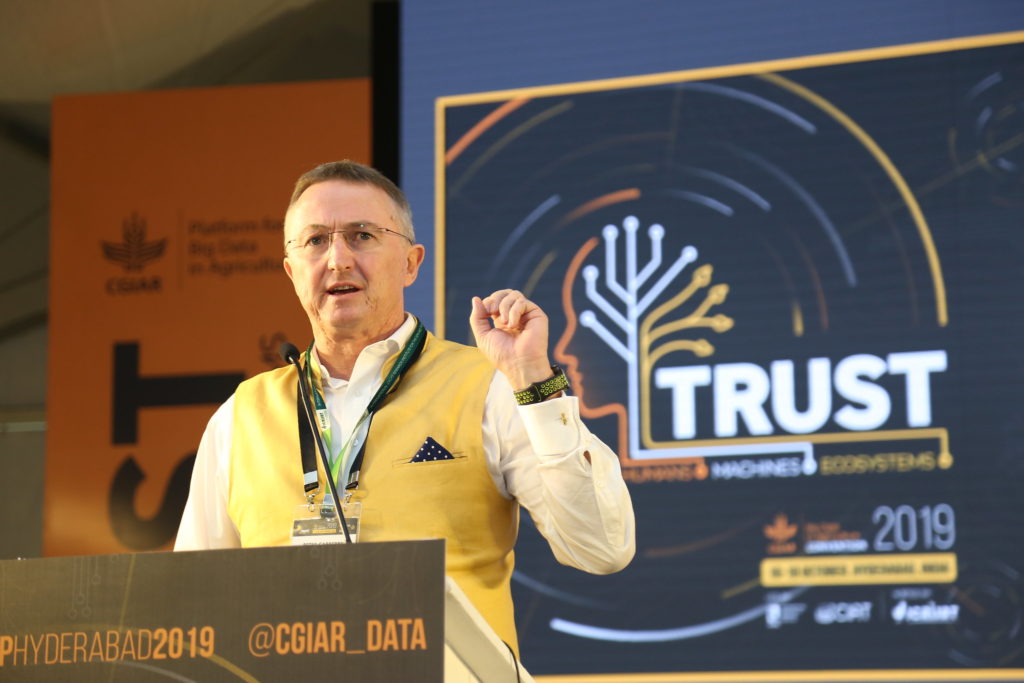
Peter Carberry, Director General of ICRISAT, welcoming Convention participants. Photo: ThoughtFolks Media.
“Big data is about providing decision support to rainfed farmers, their villages and communities. It is about providing knowledge systems that can help make decisions under such uncertainties like rainfall,” said Carberry.
Senior Research Fellow and Module Lead at the CGIAR Platform for Big Data, Medha Devare, highlighted the need to integrate big data efforts across institutions and platforms.
“The challenge with having diverse kinds of data, such as pest and agronomic data, is that it is being collected by different people in different ways, which makes it difficult to find and reuse. We are trying to harmonize that through the Big Data Platform and search tools like Global Agricultural Research Data Innovation & Acceleration Network (GARDIAN).”
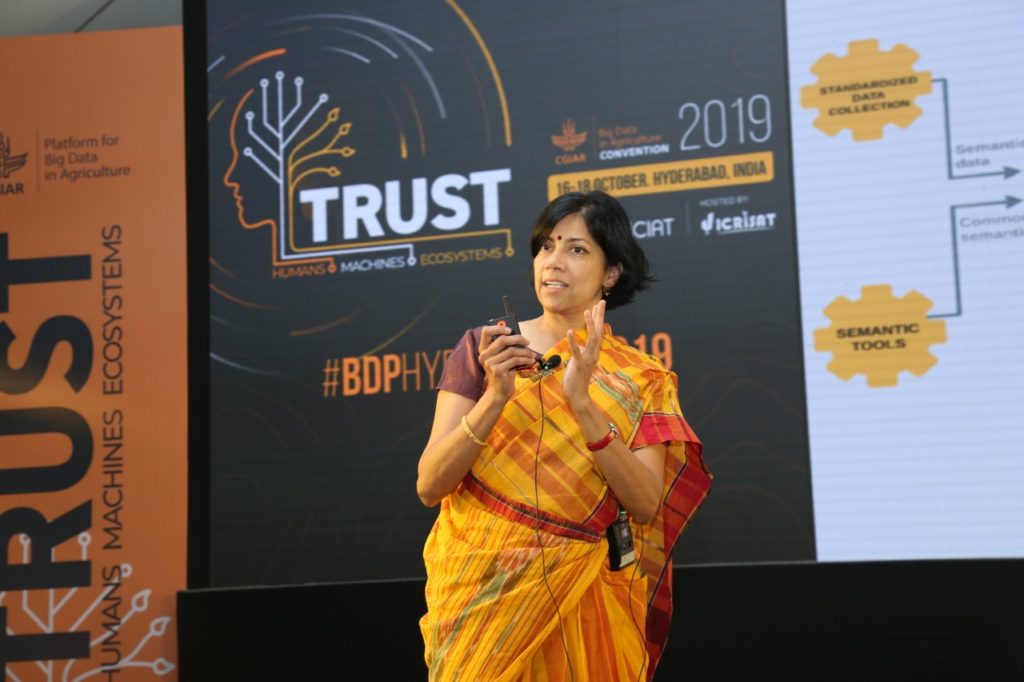
Medha Devare, Module Lead at the CGIAR Platform for Big Data in Agriculture, speaking on semantic data tools at the 2019 BIG DATA Convention. Photo: ThoughtFolks Media.
Devare, who is the architect of GARDIAN, a newly launched data aggregator and search tool, described the ‘ontology´ standardization efforts that the Platform is developing. Ontologies, she explained can lead to more complete conclusions sourced from different datasets.
Yvonne Pinto, Director at ALINE Impact Limited, added that “it is not just agriculture” that needs standardization. “It is access to finance, credit and other enablers. If these platforms exist in the agriculture ecosystem, then other services like logistics, marketers, financial service providers get integrated,” said Pinto.
Day one of the Convention saw discussions around Aadhar Data in India, empowering food systems through blockchain technologies, and provided delegates a snapshot of digital agriculture technologies from across the world.
Brian King, Coordinator for the Big Data Platform, said the convention will also reveal the effectiveness of digital communication channels in reaching out to farmers.
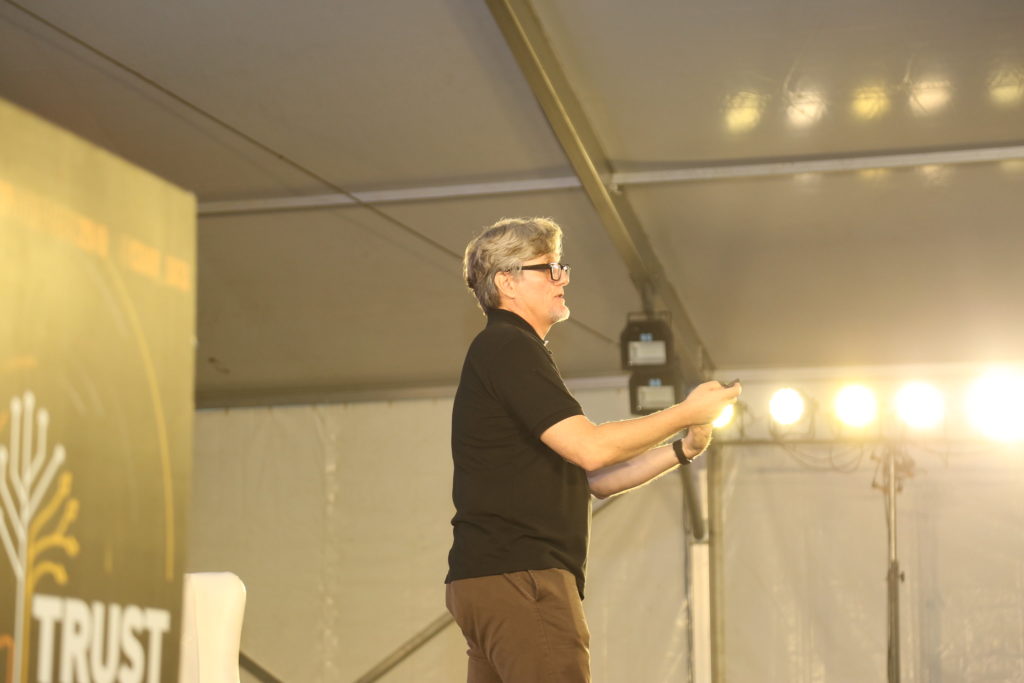
BIG DATA Platform Coordinator Brian King gives the opening plenary on Trust: Humans, Machines, and Ecosystems. Photo: ThoughtFolks Media.
“We are looking at how research, existing learning efforts and extension services can integrate with non-conventional communication channels. One of our Inspire Challenge winners has reached a million farmers through their social media-based advisory channels,” he said.
Technical sessions on building trust in the digital agriculture ecosystem were held during the three-day conference from 16-18 October.
For ICRISAT’s digital agriculture initiatives click here.
October 18, 2019
ICRISAT
Hyderabad, India
Latest news

